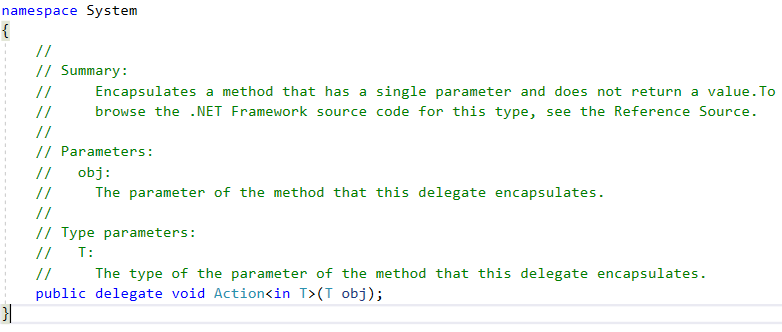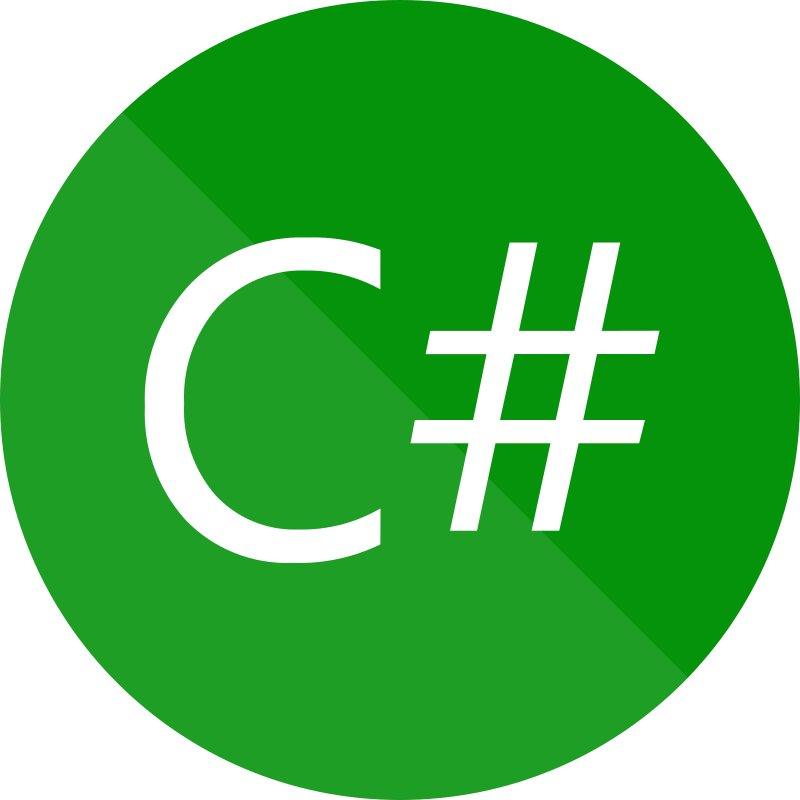Why should we use delegates. Delegate is one of the most wrongly interpreted word by developers in C#. Delegate is widely used inside .net framework itself. Let’s go further and break that delegate wall that every interviewer asks. There are several benefits of delegates in application
My Experience with delegates in application
In my all years of experience I have used delegate several times and noticed that after I am done with development who ever over takes that code from me is not able to grasp that particular delegate logic.
If used wisely it can save a lot of time and lines of code but if used in inappropriately it will confuse everyone in future.
Purpose
It helps achieving following
- Encapsulation / Abstraction
- Security
- Callback
- Re-usability
Most common definition of Delegate
“Delegate is a keyword in .net that is used as function pointer” or
“Delegate is used for callbacks only”
Well nothing is wrong in these definition but these definition does not tell you the whole picture itself, it’s more confusing
Characteristics
Delegate has few characteristic
- Type safe
- Takes method in assignment
Let’s start by an example –
First let’s create our Product model. We are going to use this model
using System;
namespace Models
{
public class Products
{
public string ProductName { get; set; }
public int ProductId { get; set; }
}
}Let’s create and interface. General practice to create interface
using System;
using System.Collections.Generic;
using System.Linq;
using System.Text;
using System.Threading.Tasks;
namespace BusinessLayer
{
public interface ICustomer<T>
{
void Process(T products);
}
}Inherit this interface in class
using Models;
using System;
using System.Collections.Generic;
using System.Linq;
using System.Text;
using System.Threading.Tasks;
namespace BusinessLayer
{
public class FrequentCustomer : ICustomer<Products>
{
public void Process(Products product)
{
Console.WriteLine($"Product Count : 1");
Console.WriteLine("--Product Details--");
Console.WriteLine($"Name : {product.ProductName} Product Id : {product.ProductId}");
}
}
}
Process is the method which will be called by an anonymous later
using System;
using System.Collections.Generic;
using System.Linq;
using System.Text;
using System.Threading.Tasks;
namespace ServiceCallManager
{
public static class ServiceCaller
{
public static void Invoke<TService>(Action<TService> action)
{
Type typ = typeof(TService);
TService instance = (TService)Activator.CreateInstance(typ);
action(instance);
}
}
}
Invoke is the method which takes Action<TService> type argument, in .Net Action is delegate whose return type is void

See the summary, it says “encapsulates”
Now we all know delegate takes method in assignment (Encapsulates method)
Method can be in any form let’s say anonymous methods,
What is the anonymous method
“A method without name!”
Now let’s look into our next class
using BusinessLayer;
using Models;
using ServiceCallManager;
using System;
using System.Collections.Generic;
using System.Dynamic;
using System.Linq;
using System.Net;
using System.Text;
using System.Threading;
using System.Threading.Tasks;
namespace CallbackExample
{
class Program
{
static void Main(string[] args)
{
IList<Products> products = new List<Products>();
Products product1 = new Products();
product1.ProductName = "Rice";
product1.ProductId = 1;
products.Add(product1);
product1 = new Products();
product1.ProductName = "Dal";
product1.ProductId = 2;
products.Add(product1);
product1 = new Products();
product1.ProductName = "Chana";
product1.ProductId = 3;
products.Add(product1);
ServiceCaller.Invoke<FrequentCustomer>(x => x.Process(product1));
Console.WriteLine();
Console.ReadKey();
}
}
}
ServiceCaller.Invoke<FrequentCustomer>(x => x.Process(product1));
Remember that invoke method accepts delegate as argument and delegate encapsulates methods, so here inside Invoke method I am passing an anonymous method which will get invoked when action() is called which executes the anonymous method and calls the Process method of FrequentCustomer class
Let’s go step by step-
- Breakpoint comes to ServiceCaller.Invoke<FrequentCustomer>(x => x.Process(product1));
- It goes inside Invoke method of static ServiceCaller class
- Via reflection we are creating object of ServiceT type (You can ignore this if you don’t understand reflection)
- At the last line of method action is called with parameter instance i.e. object of ServiceT type
- After action(instance) is called breakpoint comes to ServiceCaller.Invoke<FrequentCustomer>(x => x.Process(product1)); and it starts executing the x => x.Process(product1) part only
- You will notice that x is of type FrequentCustomer

- So this part of execution calls the Process method or FrequentCustomer and also passing local parameter in it
Now the benefit of delegate here is I am able to local variable inside method i.e. product1 which may not be available in other class due to security reasons
Delegate helps me implement Encapsulatiopn, Security, Callback (Obviously), Re-usability and if used wisely Polymorphism also
For more blogs like this please visit http://codeinout.blogspot.com/ of follow me on https://twitter.com/ishooagarwal
Thanks


Very interesting topic, appreciate it for posting.Blog monry